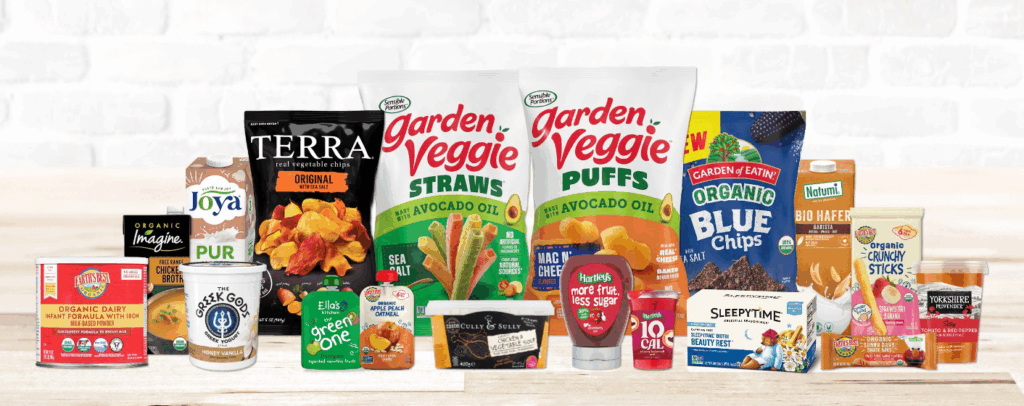Hain Celestial plans to cut approximately 30% of its SKUs in North America, which is their largest market for better-for-you food and drinks.
In a recent report detailing first-quarter results, interim president and CEO Alison Lewis provided insights into the company’s strategic priorities set in September. At that time, Hain Celestial announced plans to “aggressively” trim its portfolio as part of a turnaround initiative aimed at stabilizing the business.
“We remain focused on building a streamlined portfolio by exiting unprofitable or low-margin SKUs. Our intention is to refocus resources on brands and categories with the highest growth and margin potential,” Lewis explained during an investor call.
The specific brands or categories targeted for divestment have yet to be disclosed, particularly for a company involved in snacks, meal preparation, baby foods, beverages, and personal care products.
“Moving forward, we intend to eliminate approximately 30% of our SKUs in North America by fiscal 2027. This strategic move aims to remove low-value items from our portfolio and enhance supply chain efficiency and shelf productivity,” she elaborated.
“We have introduced a disciplined portfolio management review process. This will continuously assess, add, or retire SKUs, ensuring an optimized portfolio while reducing the need for extensive rationalization efforts.”
Lewis’ predecessor, Wendy Davidson, left the company in May, just months after joining in 2023. During her time, Davidson divested from the snack brands ParmCrisps and Thinsters but soon ruled out personal care divestments.
Davidson had initially committed to removing “lower margin” SKUs under her Hain Reimagine transformation initiative, building on a program from former CEO Mark Schiller.
However, ongoing sales and profit challenges have significantly impacted Hain Celestial’s share price. The stock has dropped around 80% this year, despite recent results indicating potential for recovery.
“Our immediate priorities are clear: stabilizing sales, improving profitability, optimizing cash flow, and deleveraging our balance sheet,” Lewis stated.
“We have restructured much of our global infrastructure and established an operational model that empowers regional teams. This prioritizes speed, simplicity, and impact throughout the organization.”
The owner of Linda McCartney’s plant-based meat products and Earth’s Best baby food reported an annual loss of $531m in September, primarily due to a non-cash impairment charge of $496m.
Furthermore, Hain Celestial experienced a net loss of $21m for the first quarter ending September 30, slightly worse than the $20m loss recorded during the same period last year.
The adjusted net loss stood at $7m, compared to a loss of $4 million in the previous year. Adjusted EBITDA, however, was positive at $20m, down from $22m.
Sales dipped 7% to $368m, with organic sales declining 6%. Hain Celestial attributed this drop to a seven-percentage-point reduction in volume/mix, offset by a one-point gain in pricing.
Losses per diluted share reached $0.23, a slight decrease from a loss of $0.22.
CFO Lee Boyce reiterated that full-year guidance would remain unavailable, considering the uncertainty surrounding the strategic review’s outcome and timeline.
While Lewis reviews the portfolio, Hain Celestial is also enhancing its innovation efforts.
“We are optimistic about having one of the most robust innovation pipelines in our recent history. Our goal is to significantly boost our contribution to growth through innovation,” Lewis noted.

